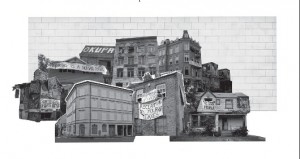 Squatting in Europe: Radical Spaces, Urban Struggles, Edited by the Squatting Europe Kollective, 2013
Squatting in Europe: Radical Spaces, Urban Struggles, Edited by the Squatting Europe Kollective, 2013
Free access to the book
http://sqek.squat.net/wp-content/uploads/2013/03/sqek-book.pdf
About the Squatting Europe Kollective
This book is just one of the results of a long standing work of mutual collaboration, debates and visits that we SqEK (Squatting
Europe Kollective) began in January 2009. Since then our network has expanded and we have met several times in different European cities
(Madrid, Milan, London, Paris, Berlin, Amsterdam and Copenhagen so far), and in a non-European one (New York). SqEK has gathered scholars and activists who have contributed to this network according to their various backgrounds. Past or present political activism around squatting has been the main inspiration for many of us, but we also work together in order to develop a thorough, systematic and critical knowledge about this so frequently forgotten social movement. Both
activism and research, thus, define our recent trajectory and our forthcoming activities. Articles, books and in-depth academic debates are as important as the support to protest campaigns and to specific squats, consultancy for militants, and the spreading of the rich and valuable experiences of squatting all around Europe. We deem there is a political responsibility of social scientists in a context of the incremental repression of squatting in European countries. To shed light on this issue through the analysis of its different sides, contributions and involved social conflicts, seems to us a way of necessary scientific intervention into current political debates. People’s reactions against social cutbacks in Greece, Spain, France or UK in the last few years have also pointed out to the tight connections that these anti-neoliberal movements keep with squatting and previous social movements based on direct democracy and self-organisation. Non-squatted social centres and alike social initiatives such as protest camps keep also close threads with squatting experiences, which also emerge once again in places where they had been disappeared. Nowadays the illegal status of squatting should not be an excuse to cover and diminish the relevance of the squatters’ movement in radical and grassroots politics.
All the authors who contribute to the present volume are currently involved in ongoing research about squatting and these chapters are
just some pieces of their larger works. As it is showed by the amount of references quoted in the book, the seemingly hidden reality of squatting in Europe can now be regarded as solidly grounded in the research of these and other scholars. Sociology, political science, anthropology, history and, even, ecological economics are the major disciplinary approaches to the issue of squatting in this book. However, these academic boundaries are continuously crossed and put into question by
most of the authors. According to the initial intentions of the SqEK promoters, the different traditions, theoretical insights and empirical
tools of all the social sciences should be useful in order to understand the complexity of squatting. Therefore, transnational comparisons, attention to the diverse forms of squatting and to political contexts, are the crucial lines of analysis that SqEK tries to encourage. More about SqEK at: http://sqek.squat.net
